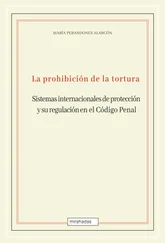haciendo fuego: six or eight verbs replace estarand go with -ndoforms; so continuarhere, and seguiroften in the text.
medio, half : one of the adverbs without the ending -mente.
por considerarlo= porque lo consideraban, because they regarded him as .
echaban a, began : echar ahas become almost an auxiliary verb with infinitives, and serves for several other verbs.
Quedó, Remained, was [ left ]: subject follows, as often. For another use of quedar, cf. quedamos en lo dicho, we will leave it that way , or it's agreed as said (Alarcón in Buenaventura , p. 5).
en medio: as usual without el.
piadosas: here the adjective follows, for emphasis.
informe, unshapely : complimentary or derogatory sense puts the adjective before its noun.
conocer, perceive : shows here the typical (inceptive) meaning of verbs in -cer.
balazo, a shot , literally, a blow with a bullet ( bala+ -azo): lately in Kansas City, a woman entered a saloon (where her husband got drunk), seized a chair ( silla) and damaged the place " a sillazos", as the Spanish weekly Cosmopolita reported.
atravesada, pierced ; fracturada, broken : the past participle must show gender and number, except with haber.
reparando en, noticing : the idea is first stop : so pararse, posarse; cf. also the noun reparos, remarks , objections , where one stops or hesitates.
primerois one of the few adverbs without -mente.
volver a( tornar a): again is often expressed as here without an adverb, otra vez, de nuevo, etc.
muy altas: note adjective for English adverb, as often.
dejásemos morirand (15,4) déjame ir: dejar, to leave , allow , let , becomes an auxiliary verb like may , can , etc., so takes the infinitive: déjalo dormir, hacérmelo verin Alarcón's Sombrero , and so often. Also deja que te dé un abrazo, let me give you a hug . Like dejar, its opposite impediris construed: me impedía desahogar, kept me from soothing [ my soul in yours ].
se diría, would be said : the reflexive form is commoner than the passive. The little bootblacks in Buenos Aires, instead of saying "Shine, Mister?" say: ¿Quiere el señor servirse?Cf. the striking case quoted by Bello, § 908: Llevose el cadáver al templo.
dichosas, literally, happy , but meaning unhappy , awful , accursed . This story is full of the disguised ( encubierto) oath, or euphemism, as well as of real oaths: say here these blessed wars . Cf. the use of santa, 85, 2.
no vas, you are not going : the indicative either present or future (cf. the future in the ten commandments) is strong for the imperative. But notice that here, and through the story, Angustias has her own way.
de qué poco: debecause with servir, how little use are your bandages .
tu… marido, thy husband : in plays and novels the author must make sure the reader or hearer gets the point; hence the insistence here upon the two relationships of the one man.
no habría… si… hubiese: in this text there are many substitutes for this typical or chief form of the condition [ si-clause] and conclusion [ habríahere].
medio(or mitadin the sense of medio) seldom has the article.
haya: even such words as creer, ver, saber, verbs that usually have queand the indicative, will take the subjunctive after a negative word or sense.
hermosa: adjective here for our adverb, as usual with ir, venir, etc. So to a waiter: mi sopa, y ligero[ bring ] my soup and [ bring it ] quick .
viera, saw : here Latin viderat , had seen , with indicative sense survives, as in Portuguese. Common in Spanish along the border of Portugal.
¡No diéronle!and (18, 7) ¡Diéronle! – exclamó con su gramática de Mondoñedo; but Alarcón himself doesn't need to scold Mondoñedo; post-placed pronouns are frequent in Alarcón's own style. The order with the negative is especially noteworthy.
medio: This form serves as noun, adjective, or adverb. In line 11 it is adverbial, whereas in line 12 it is substantive.
seguida del, followed by : a true passive.
sin que… se enterase nadie, without that any one noticed or knew , without any one's noticing .
de que, of [ the fact ] that ; so hasta que, till ; but segúnregularly without que.
justificola: this order with laat the end is almost a mannerism with Alarcón. Inconsistently, the Academy leaves the marked accent here, but marks the preterit in díjole, as it does all verb forms whose accented syllable, by reason of the post-placing of pronouns, comes to occupy proparoxytonic or anteproparoxytonic position: toma, tómalo, tómatelo; tomar, tomarlo, tomárselo; tomando, tomándolo, tomándoselo, etc.
fractura= rotura.
Читать дальше












